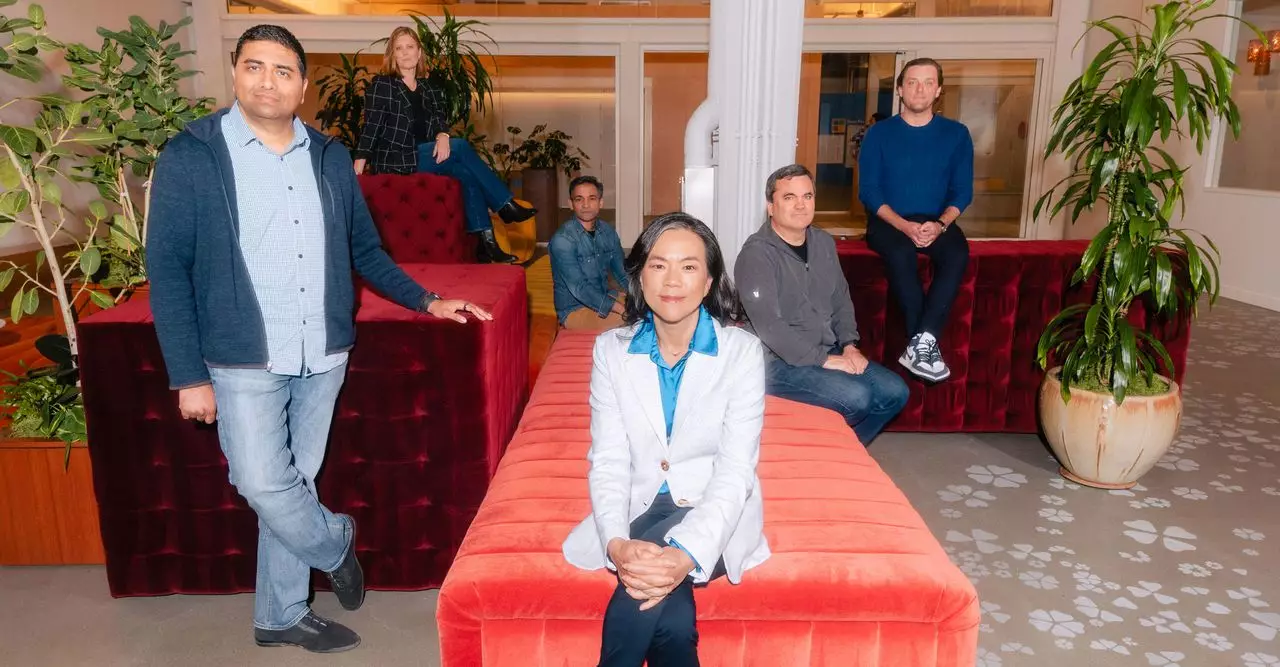In today’s competitive tech environment, companies are tasked with not merely innovating but doing so in a manner that translates directly into profit. Google, a behemoth in the industry, has taken a path familiar to Silicon Valley players: offering free services in exchange for user data and attention. While this model has served Google well for years, the burgeoning costs associated with developing advanced AI technology like Gemini underscore a pressing issue. Customers are still hesitant to pay for AI features directly, which leaves tech firms scrambling to find revenue streams, particularly in advertising.
This situation catalyzes an ongoing battle for user engagement. Google’s Gemini app, for instance, boasts about 140 million installs, significantly trailing behind OpenAI’s ChatGPT, which claims over 600 million installs according to Sensor Tower. This discrepancy serves as an ominous reminder for Google, highlighting the need for urgency in honing its AI offerings. With a plethora of competitors, including Claude, Copilot, and DeepSeek, the stakes are high—innovation must coincide with profitability for survival.
The Sustainability Dilemma of Generative AI
The generative AI industry has entered at an unprecedented financial firestorm, necessitating billions of dollars in investment. These expenses not only concern financial sustainability but also extend to environmental impacts. Surprisingly, the energy expenditure needed for these AI systems is not trivial; it is enough to keep older coal and nuclear plants operational. Yet, proponents of AI technology argue that the efficiencies and potential for error reduction will eventually outweigh these costs. Companies like Google invest not only in streamlining operations but also in refining the user experience—all while pursuing the elusive promise of a reliable return on investment.
However, amidst these ambitions loom threats from the regulatory landscape. As forever vigilant as the tech giants are, experts predict that Google could face a significant downturn—potentially losing a quarter of its search ad revenue due to looming antitrust judgments. This daunting prospect propels executives and staff into overdrive, leading to a culture of relentless work reminiscent of wartime productivity, where 60-hour workweeks are seen as the ideal.
A Cloud of Uncertainty: Work Culture at Google
The atmosphere within Google itself appears tense. Current employees and former associates express unease regarding their roles in the AI race. Creative burnout and potential future layoffs hang over the company like a specter, intensifying the pressure on teams striving to push AI boundaries. Google’s co-founder, Sergey Brin, recently referred to a 60-hour workweek as the “sweet spot” for productivity—but at what cost to employee morale and well-being? The expansive ambition for artificial general intelligence (AGI) led by DeepMind’s Demis Hassabis exacerbates these concerns. Employees are expected to perform at peak levels consistently, a heavy burden in a rapidly evolving field.
As Google strives to circumvent pitfalls, such as accountability lapses and technological gaffes, the company is engulfed in an exhausting quest for breakthrough innovation. When Gemini, for example, mistakenly claimed that half the world’s cheese consumption is gouda, it not only sparked laughter but raised concerns over the reliability of these AI systems. Mistakes can injure reputations in the race to establish expertise, underscoring that moving fast can often mean erring even faster.
The Future of AI and User Interaction
Emerging AI capabilities challenge traditional user engagement paradigms. OpenAI’s introduction of the Operator service—a feature capable of performing tasks such as booking trips and filling forms—presents an interesting crossroads for the AI industry. Operating at a fraction of human speed and efficiency, it still suggests a profound shift in how users might interact with software. Google mirrors this ambition, looking to imbue its Gemini models with similar agentic features.
Forward-looking projections envision future iterations of Gemini that not only assist with mundane tasks like meal planning but also integrate seamlessly into consumers’ daily lives. The potential for real-time interaction—where AI offers feedback on skills as nuanced as onion chopping—paints a vision of a tech-savvy future that pushes boundaries and redefines everyday experiences.
As the industry races forward, the balancing act between speed and reliability is more crucial than ever. Each misstep is a learning opportunity, but it also magnifies the scrutiny that companies like Google face in yielding results. Executives like Sundar Pichai maintain that cautious advancements are essential. Google, rediscovering its footing in the AI arena, must not only innovate but do so with an acute awareness of the consequences tied to its growth—a balancing act that is fragile and consequential in equal measure.


Leave a Reply